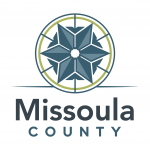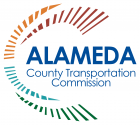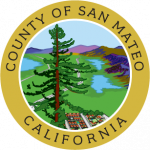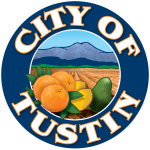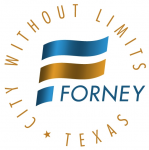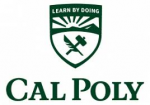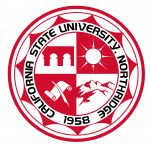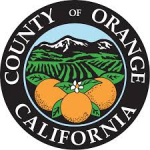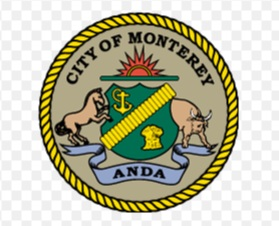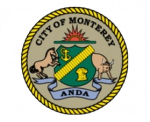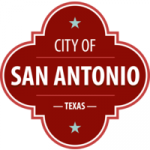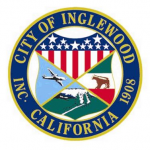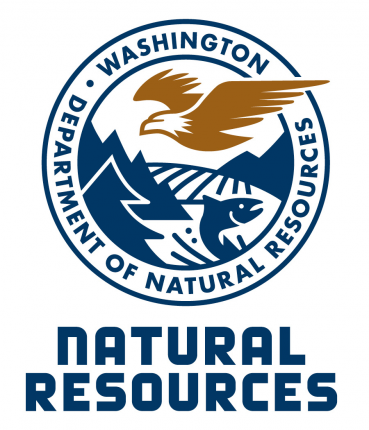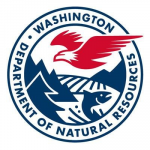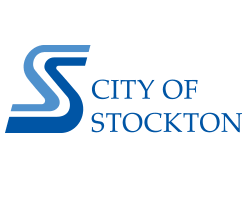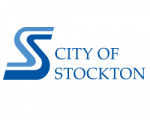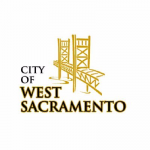The Ins and Outs of Government PR Jobs - And Why It's Worth It To Consider One

Introduction
Picture this: you're a skilled communicator with a knack for crafting compelling messages and a deep desire to make a difference in your community. You've considered various career paths, but the idea of working in government PR keeps nagging at you. You're intrigued by the opportunity to shape public perception, inform citizens, and contribute to the greater good, but you're not quite sure what a government PR job entails or if it's the right fit for you.

Sound familiar? If so, you've come to the right place.
In this comprehensive guide, we'll dive deep into the world of government PR jobs, exploring the key responsibilities, necessary skills, and potential career growth opportunities within this dynamic field.
We'll paint a vivid picture of what it's like to work as a government PR professional, from the day-to-day tasks to the challenges and rewards that come with the territory.
But here's the thing: a government PR job isn't for everyone. It requires a unique combination of strategic thinking, adaptability, and a thick skin. You'll need to navigate complex bureaucracies, juggle competing priorities, and sometimes face public scrutiny. But if you're up for the challenge, a career in government PR can be incredibly fulfilling.
Roles and Responsibilities
When you step into a government PR job, you'll quickly realize that no two days are the same. Your role will be multifaceted, challenging, and always keeps you on your toes. At its core, your primary responsibility will be to manage the public image and reputation of the government agency or official you represent. But what does that actually entail? Let's break it down.
Crafting Compelling Communications
One of your key duties will be developing and implementing communication strategies that effectively convey your agency's mission, goals, and initiatives to the public. This means you'll need to have a deep understanding of your target audience and craft messages that resonate with them. You'll be the mastermind behind press releases, speeches, social media posts, and other public-facing content, ensuring that all communications are clear, concise, and on-brand.
Managing Media Relations and Crisis Communications
But your job doesn't stop there. As a government PR professional, you'll also be the go-to person for media inquiries and crisis communications. When reporters come knocking with tough questions or a scandal erupts, you'll need to think on your feet and develop strategic responses that mitigate damage and maintain public trust. It's a high-pressure role that requires a cool head and a quick wit.
Engaging the Public Through Outreach and Events
In addition to reactive tasks, you'll also be proactive in your approach to PR. This means organizing press conferences, public events, and community outreach initiatives that showcase your agency's work and engage citizens in meaningful ways. You'll be the bridge between your agency and the public, fostering relationships and building trust through open and transparent communication.
Collaborating with Stakeholders and Subject Matter Experts
Of course, all of this work doesn't happen in a vacuum. As a government PR professional, you'll collaborate closely with agency leaders, subject matter experts, and other stakeholders to ensure that all communications are accurate, timely, and aligned with your agency's goals. You'll need to be a master negotiator, able to balance competing priorities and find common ground among diverse perspectives.
Required Skills and Qualifications
So, you're intrigued by the idea of a government PR job, but you're not sure if you have what it takes to succeed in this dynamic field. Don't worry – we've got you covered. While the specific requirements may vary depending on the agency and position, there are certain skills and qualifications that are essential for any government PR professional. Let's take a closer look.
Excellent Communication Skills
First and foremost, you'll need to be an exceptional communicator. This means having the ability to write clear, concise, and compelling content across a variety of mediums – from press releases and speeches to social media posts and website copy. You'll also need to be an articulate and confident speaker, able to deliver messages effectively in front of cameras, reporters, and public audiences.
Strategic Thinking and Problem-Solving Abilities
But being a great communicator isn't enough – you'll also need to be a strategic thinker and problem solver. Government PR professionals are often faced with complex challenges that require creative solutions and the ability to think on their feet. You'll need to be able to analyze situations quickly, identify potential risks and opportunities, and develop strategic approaches that achieve desired outcomes.
Relationship Building and Interpersonal Skills
Another key skill for government PR professionals is the ability to build and maintain relationships with a wide range of stakeholders – from media contacts and community leaders to agency staff and elected officials. You'll need to be able to navigate complex bureaucracies, build trust and credibility with diverse audiences, and foster collaborations that advance your agency's goals.
Adaptability and Resilience
In the fast-paced world of government PR, things can change at a moment's notice. You'll need to be adaptable and resilient, able to pivot quickly when priorities shift or crises emerge. This means being able to work well under pressure, manage multiple tasks and deadlines simultaneously, and maintain a positive attitude even in the face of adversity.
Knowledge of Government Processes and Policies
Having a solid understanding of government processes and policies is essential for success in a government PR job. You'll need to be familiar with the workings of your agency, the legislative and regulatory environment in which it operates, and the key issues and challenges facing your community. This knowledge will enable you to craft effective messages, anticipate potential roadblocks, and navigate the complex landscape of government communications.
While this may seem like a daunting list of requirements, don't let it discourage you. Many of these skills can be developed over time through a combination of education, training, and on-the-job experience.
Career Advancement Opportunities
So, you've got your government PR job title and you're excited about the opportunities. But what does the future hold? What kind of career advancement opportunities are available to you? Let's explore some of the paths you might take as you grow and develop in your government PR career.
Progressing to Senior-Level Positions
One of the most common career advancement opportunities in government PR is progressing to senior-level positions within your agency. As you gain experience and demonstrate your skills and leadership abilities, you may be promoted to roles such as Senior Communications Specialist, Communications Director, or Public Affairs Specialist. These positions typically require demonstrated ability of strategy development, team management, and high-level decision-making.
Specializing in a Particular Area of PR
Another way to advance your career in government PR is to specialize in a particular area of communications. For example, you might focus on digital communications and social media, or you might develop expertise in crisis communications and emergency response. By becoming a subject matter expert in a specific area, you can position yourself as a valuable resource to your agency and open up new opportunities for growth and advancement.
Transitioning to a Different Agency or Department
In some cases, career advancement in government PR may involve transitioning to a different agency or department. You might seek out opportunities to work in a larger or more high-profile agency, or you might be interested in exploring a different area of government, such as education, healthcare, or environmental protection. By bringing your skills and experience to a new agency, you can broaden your professional network, take on new challenges, and continue to grow in your career.
Pursuing Leadership Roles in Professional Organizations
Outside of your day-to-day job, you can also advance your career by taking on leadership roles in professional organizations related to government PR. For example, you might serve on the board of the National Association of Government Communicators or lead a committee for the Public Relations Society of America. These roles can help you build your professional reputation, develop new skills, and make valuable connections with other PR professionals across the country.
Transitioning to the Private Sector
Some government PR professionals choose to advance their careers by transitioning to the private sector. The skills and experience you gain in government PR – such as strategic communication, media relations, and crisis management – are highly transferable to the corporate world. You might seek out PR positions with companies that have a strong public affairs or government relations focus, or you might start your own PR consulting firm that specializes in serving government clients.
Regardless of the path you choose, the key to career advancement in government PR is to continually develop your skills, build your professional network, and seek out new challenges and opportunities. By staying proactive and strategic in your career development, you can position yourself for long-term success and make a meaningful impact in your community and beyond.
Challenges and Rewards
Working in government PR can be a deeply fulfilling career path, but it's not without its challenges. Like any job, there are both rewards and obstacles that come with the territory. Let's take an honest look at what you can expect as a government PR professional.
Challenges
One of the biggest challenges of working in government PR is navigating the complex bureaucracy and red tape that often comes with the job. Government agencies are subject to a wide range of rules, regulations, and approval processes that can slow down decision-making and hinder progress. As a PR professional, you'll need to be patient, persistent, and creative in finding ways to get things done within the system.
Government agencies are often working with limited budgets and resources, which can make it challenging to execute effective PR campaigns and initiatives. You may need to get creative with your strategies and tactics and find ways to do more with less. Additionally, the fast-paced nature of government means that you'll often be working under tight deadlines and pressure to deliver results quickly.
Finally, government PR professionals need to be adaptable and resilient in the face of changing priorities and leadership. Political administrations come and go, and with each transition can come new directives, initiatives, and messaging. You'll need to be able to change direction and adjust your strategies and tactics to align with the current priorities and goals of your agency and its leaders.
Rewards
Another reward of government PR is the satisfaction of knowing that you're serving the public good. As a public servant, your ultimate goal is to work in the best interests of the people you serve. This can be a powerful motivator and source of pride, knowing that your efforts are contributing to a larger purpose and mission.
Working in government PR also provides opportunities to develop unique and valuable skills that can serve you throughout your career. You'll gain experience in strategic communication, media relations, crisis management, and stakeholder engagement – all skills that are highly transferable to other industries and sectors. You'll also develop a deep understanding of government processes, policies, and issues, which can make you a valuable asset to any organization.
Government PR can be a great way to build your professional network and reputation. You'll have the opportunity to work with a wide range of stakeholders – from elected officials and agency leaders to media contacts and community partners. By building strong relationships and demonstrating your expertise and value, you can position yourself for future career opportunities and growth.
While the challenges of government PR can be significant, the rewards are equally powerful. If you're passionate about serving the public good and developing your skills and reputation, a career in government PR may be the perfect fit for you.
Landing Your First Government PR Job
Gain relevant education and training
Pursuing a degree in communications, public relations, journalism, or a related field can provide a strong foundation for a career in government PR. Consider earning a master's degree in public administration or public policy to deepen your understanding of government processes and issues. Taking courses or workshops in government relations, public affairs, or crisis communication can also help you build specialized knowledge and technical skills.
Gain relevant education and training
Pursuing a degree in communications, public relations, journalism, or a related field can provide a strong foundation for a career in government PR. Consider earning a master's degree in public administration or public policy to deepen your understanding of government processes and issues. Taking courses or workshops in government relations, public affairs, or crisis communication can also help you build specialized knowledge and technical skills.
Build your professional experience
Seeking out internships or entry-level positions in government agencies or nonprofit organizations can provide valuable hands-on experience in government PR. Volunteering for political campaigns or advocacy groups can also help you gain experience in messaging and outreach, while building your professional network. Look for opportunities to write or speak about government issues, such as op-eds or community forums, to demonstrate your expertise and engagement.
Develop your skills and expertise
Honing your writing and editing skills through practice and feedback is essential for success in government PR. Learning to use social media and digital communication tools effectively can also help you reach and engage different audiences. Staying up to date on current events and policy issues related to your areas of interest can help you provide informed and relevant communications.
Network and build relationships
Attending government and public affairs conferences and events can provide opportunities to meet and learn from other professionals in the field. Joining professional organizations like the National Association of Government Communicators or the Public Relations Society of America can also help you build your network and access resources and support. Reaching out to government PR professionals for informational interviews or advice can provide valuable insights and guidance.
Prepare for the hiring process
Familiarizing yourself with the government job application process, which may include exams or assessments, can help you navigate the hiring process more effectively. Practicing your interviewing skills and being prepared to discuss your experience and qualifications with human resources can help you make a strong impression. Being patient and persistent is also important, as the government hiring process can often take longer than the private sector.
Consider alternative paths to government PR
Looking for PR positions with government contractors or consulting firms that serve government clients can provide alternative paths to working in government PR. Considering working in the nonprofit sector on issues that relate to federal government policy or services can also provide relevant experience and exposure. Exploring opportunities in local or state government, which may have more entry-level positions available, can be another way to break into the field.
With persistence, dedication, and a commitment to public service, you can launch a fulfilling career in government PR.
Conclusion
If you're a skilled communicator with a passion for making a difference in your community, government PR may be the perfect fit. Government PR and public affairs jobs present the opportunity to inform and engage citizens, promote transparency and accountability, and support initiatives that improve people's lives. It also provides the chance to develop valuable skills, build a strong professional network, and establish a reputation as a trusted and effective communicator.
With dedication, persistence, and a passion for making a difference, you can launch a fulfilling and impactful career in government PR.

The road ahead may not always be easy, but the opportunity to serve your community and contribute to the greater good is well worth the journey.


